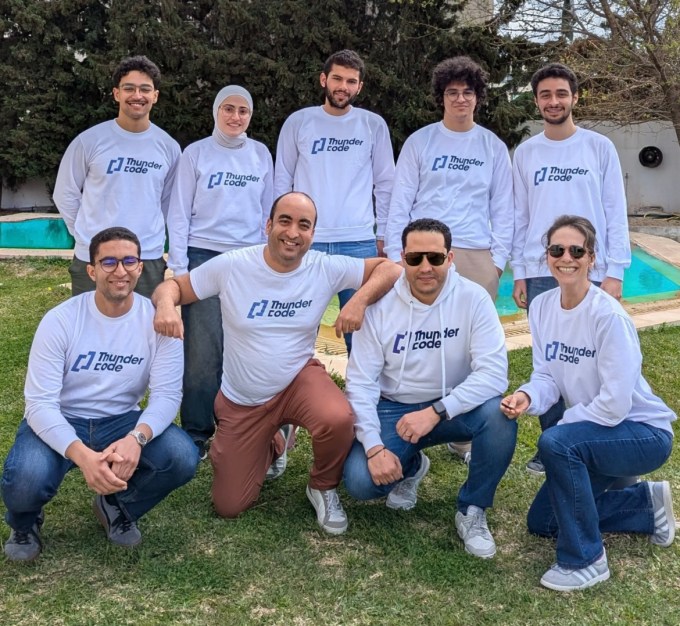In 2023, co-founders Karim Jouini and Jihed Othmani sold their expense management startup Expensya to Swedish procurement software firm Medius in what is widely considered to be one of the largest acquisitions of an African startup. Some sources say the sum was just over $120 million, although deal terms were not disclosed.
Success achieved, both founders swore off entrepreneurship, never intending to do another startup again and Jouini became a CTO role in the merged software company, with other acquisitions spanning three continents.
But the pull of a new technological wave – generative AI – and the thought that they may be able to build something even bigger with them have drawn them back in.
The two have now co-founded Thunder Code, a generative AI-powered software testing platform, which has already secured $9 million in seed funding, they told TechCrunch.
“It’s pretty crazy because we promised not to do another company because Expensya was too hard,” Jouini said. “But I think it’s like when people have two kids, they forget how hard the first one was. This new venture is less than six months old and already super intense, but we’re fired up. We’re convinced this is unicorn material.”
Jouini says his transition into head of technology at Medius reignited a spark he missed after years as Expensya’s frontman. As he oversaw the integration of six companies across three continents, he saw firsthand how generative AI could reshape the software industry. Testing was a universal problem, no matter the product, a realization that seeded the idea for Thunder Code.
Thunder Code tackles slow, manual testing with AI-powered “agents” that mimic human testers. These agents simulate QA processes, catch subtle UI and UX issues, and learn from feedback.
Determined to avoid Expensya’s early missteps, Jouini prioritized speed. “We shipped our first MVP in week six, and now the product is much more solid six months in than Expensya was in year four,” he said. This reflects a widely held belief in startup land that fast feedback trumps perfect plans.
Thunder Code is already gaining traction, with paying customers and pilot programs across the U.S., Canada, France, and Tunisia. The company partners with delivery managers, QA shops, and developer teams eager to test and ship faster. Its current focus is web application testing, with plans to expand into mobile, desktop, and API testing by late 2025.
In addition to speed, Jouini’s second rodeo also applies other hard-earned lessons from Expensya, like focusing on core features and getting the best talent as soon as possible. He’s unapologetic about early dilution, as it relates to investing in top talent. “A lot of African entrepreneurs are scared to dilute capital because they want to keep 100%. We believe that if we create a unicorn while diluting ourselves, that’s good value,” he remarked.
Story Continues

